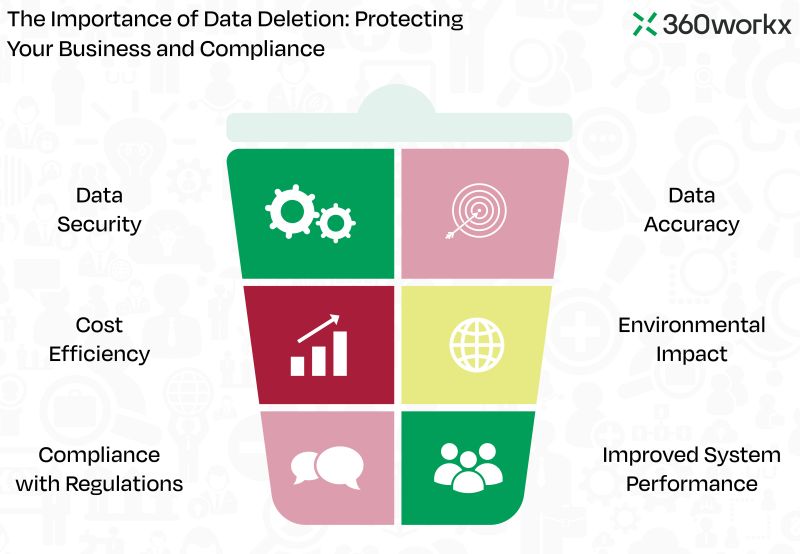In today’s data-driven world, businesses focus heavily on collecting and storing data. However, the deletion of data is just as important as its collection. Whether for compliance, security, or operational efficiency, a well-structured data deletion strategy is crucial for modern organizations.
Why Data Deletion Matters
1. Data Security
Retaining outdated or unnecessary data increases the risk of data breaches and unauthorized access. Cybercriminals often exploit unmaintained databases, making proper data deletion a key element of risk mitigation and information security.
2. Cost Efficiency
Data storage is expensive. Organizations store massive amounts of data across cloud servers, data centers, and on-premises infrastructure. Regularly eliminating redundant or obsolete data reduces storage costs and optimizes infrastructure expenses.
3. Compliance with Regulations
Regulatory frameworks such as GDPR, the revised Swiss Privacy Law (nFADP), CCPA, and HIPAA mandate the deletion of personal data when it is no longer needed. Failure to comply can result in substantial fines and legal penalties. A structured deletion policy ensures organizations remain compliant while minimizing regulatory risks.
4. Data Accuracy and Integrity
Accumulating outdated or irrelevant data can lead to poor decision-making and inaccurate analytics. By removing obsolete data, businesses can maintain a high-quality data repository that enhances operational efficiency and strategic planning.
5. Environmental Impact
Data centers consume vast amounts of energy, contributing to carbon emissions and environmental degradation. By reducing unnecessary storage, businesses lower their digital footprint and energy consumption, supporting sustainable business practices.
6. Improved System Performance
Overloaded systems with excessive data slow down applications, increase latency, and affect productivity. Proper data deletion frees up storage space, leading to faster processing speeds, optimized system performance, and seamless user experiences.
Implementing an Effective Data Deletion Strategy
To fully realize the benefits of data deletion, organizations should adopt a structured approach, including:
- Automating Data Retention and Deletion – Implement tools that automatically delete data after its retention period expires.
- Classifying and Prioritizing Data – Identify which data is critical and which should be removed.
- Ensuring Secure Deletion – Use certified deletion methods that permanently erase sensitive data from all storage locations.
- Maintaining Audit Trails – Keep track of what was deleted, when, and why to maintain compliance and transparency.
Final Thoughts
A proactive data deletion strategy is essential for security, compliance, cost savings, and system efficiency. Organizations must integrate data deletion into their overall data governance framework to minimize risks and optimize resources.
Is your data deletion strategy up to date? Start reviewing your data management practices today to ensure your business stays secure, compliant, and efficient.
Schedule a demo with Data Privacy Hub to explore how automated data deletion solutions can enhance your data management strategy.

